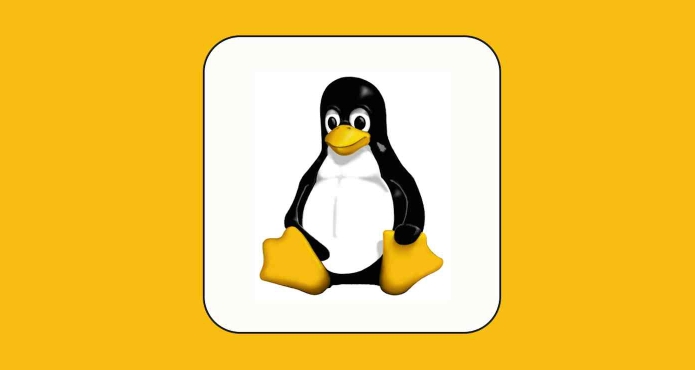There are three main ways to become a root user in Linux: 1. Use the su command to switch, enter su - and provide the root password; 2. Execute a single command through sudo or use sudo -i to enter the root shell; 3. Log in directly as root (not recommended), you need to set the password and modify the SSH configuration. It is recommended to give priority to the use of sudo to ensure safety.

Becoming a root user in Linux is actually to obtain the highest permissions of the system, which is convenient for performing some operations that require administrator permissions, such as installing software, modifying system configurations, etc. There are several implementation methods, and each applicable scenario is slightly different.

Use the su command to switch to root
This is one of the most traditional ways to work with most Linux distributions. You just need to enter:

su -
Then enter the root user's password. If the root password has not been set, it may be locked by default (especially for systems like Ubuntu).
What should be noted is:

- Some systems do not set passwords for root by default, you need to use
sudo passwd rootto set them first. - Use the
-parameter to load the root environment variables, and it is also recommended to use the full commandsu -.
Use sudo to execute a single command or switch users
If you just want to run a command that requires permissions and don't need to switch to root completely, you can use sudo :
sudo command
For example:
sudo apt update
If you want to go directly to the root shell, you can do this:
sudo -i
or:
sudo su -
But note: sudo su - actually execute su - as an ordinary user first, which is not necessarily the best practice. It is recommended to use sudo -i first.
To use sudo , your user must be authorized in the sudoers file. The main user is usually automatically added to the sudo group when the system is installed.
Log in directly as root (not recommended)
On some servers or custom systems, you can log in as a root user directly, but this poses a security risk, especially on machines exposed on public networks. Most modern distributions disable root login by default to avoid misoperation and improve security.
If you really need to enable root login (for example, for SSH), you can do this:
- Set root password
- Modify the
PermitRootLoginoption in the/etc/ssh/sshd_configfile toyes - Restart the sshd service
However, this is not recommended unless particularly necessary.
Basically these are the methods. It is recommended to use sudo to temporarily increase power, which is both safe and convenient. If you really want to operate the root environment for a long time, use sudo -i or su - to cut in, remember to exit in time after the operation.
The above is the detailed content of How to become root user in Linux. For more information, please follow other related articles on the PHP Chinese website!

Hot AI Tools

Undress AI Tool
Undress images for free

Undresser.AI Undress
AI-powered app for creating realistic nude photos

AI Clothes Remover
Online AI tool for removing clothes from photos.

Clothoff.io
AI clothes remover

Video Face Swap
Swap faces in any video effortlessly with our completely free AI face swap tool!

Hot Article

Hot Tools

Notepad++7.3.1
Easy-to-use and free code editor

SublimeText3 Chinese version
Chinese version, very easy to use

Zend Studio 13.0.1
Powerful PHP integrated development environment

Dreamweaver CS6
Visual web development tools

SublimeText3 Mac version
God-level code editing software (SublimeText3)

Hot Topics
 10 Best File Comparison and Difference (Diff) Tools in Linux
Jun 11, 2025 am 10:26 AM
10 Best File Comparison and Difference (Diff) Tools in Linux
Jun 11, 2025 am 10:26 AM
While writing program files or normal text files, programmers and writers sometimes want to know the difference between two files or two versions of the same file. When you compare two computer files on Linux, the difference between their contents is
 How to create a new, empty file from the command line?
Jun 14, 2025 am 12:18 AM
How to create a new, empty file from the command line?
Jun 14, 2025 am 12:18 AM
There are three ways to create empty files in the command line: First, the simplest and safest use of the touch command, which is suitable for debugging scripts or placeholder files; Second, it is quickly created through > redirection but will clear existing content, which is suitable for initializing log files; Third, use echo"> file name to create a file with an empty string, or use echo-n""> file name to avoid line breaks. These three methods have their own applicable scenarios, and choosing the right method can help you complete the task more efficiently.
 5 Best Open Source Mathematical Equation Editors for Linux
Jun 18, 2025 am 09:28 AM
5 Best Open Source Mathematical Equation Editors for Linux
Jun 18, 2025 am 09:28 AM
Are you looking for good software to write mathematical equations? If so, this article provides the top 5 equation editors that you can easily install on your favorite Linux distribution.In addition to being compatible with different types of mathema
 dutree - Analyze File System Disk Usage in Linux
Jun 11, 2025 am 10:33 AM
dutree - Analyze File System Disk Usage in Linux
Jun 11, 2025 am 10:33 AM
dutree is a free, open-source, fast command-line tool for analyzing disk usage, written in the Rust programming language. It was created by combining durep (disk usage reporter) and tree (list directory content in tree-like format) command-line tools
 How to Install Eclipse IDE in Debian, Ubuntu, and Linux Mint
Jun 14, 2025 am 10:40 AM
How to Install Eclipse IDE in Debian, Ubuntu, and Linux Mint
Jun 14, 2025 am 10:40 AM
Eclipse is a free integrated development environment (IDE) that programmers around the world use to write software, primarily in Java, but also in other major programming languages using Eclipse plugins.The latest release of Eclipse IDE 2023?06 does
 15 Useful 'ifconfig' Commands to Configure Network in Linux
Jun 11, 2025 am 10:01 AM
15 Useful 'ifconfig' Commands to Configure Network in Linux
Jun 11, 2025 am 10:01 AM
ifconfig in short “interface configuration” utility for system/network administration in Unix/Linux operating systems to configure, manage, and query network interface parameters via command-line interface or in a system configuration scripts
 SCP Linux Command – Securely Transfer Files in Linux
Jun 20, 2025 am 09:16 AM
SCP Linux Command – Securely Transfer Files in Linux
Jun 20, 2025 am 09:16 AM
Linux administrators should be familiar with the command-line environment. Since GUI (Graphical User Interface) mode in Linux servers is not commonly installed.SSH may be the most popular protocol to enable Linux administrators to manage the servers
 24 Hilarious Linux Commands That Will Make You Laugh
Jun 14, 2025 am 10:13 AM
24 Hilarious Linux Commands That Will Make You Laugh
Jun 14, 2025 am 10:13 AM
Linux has a rich collection of commands, and while many of them are powerful and useful for various tasks, there are also some funny and whimsical commands that you can try out for amusement. 1. sl Command (Steam Locomotive) You might be aware of the






